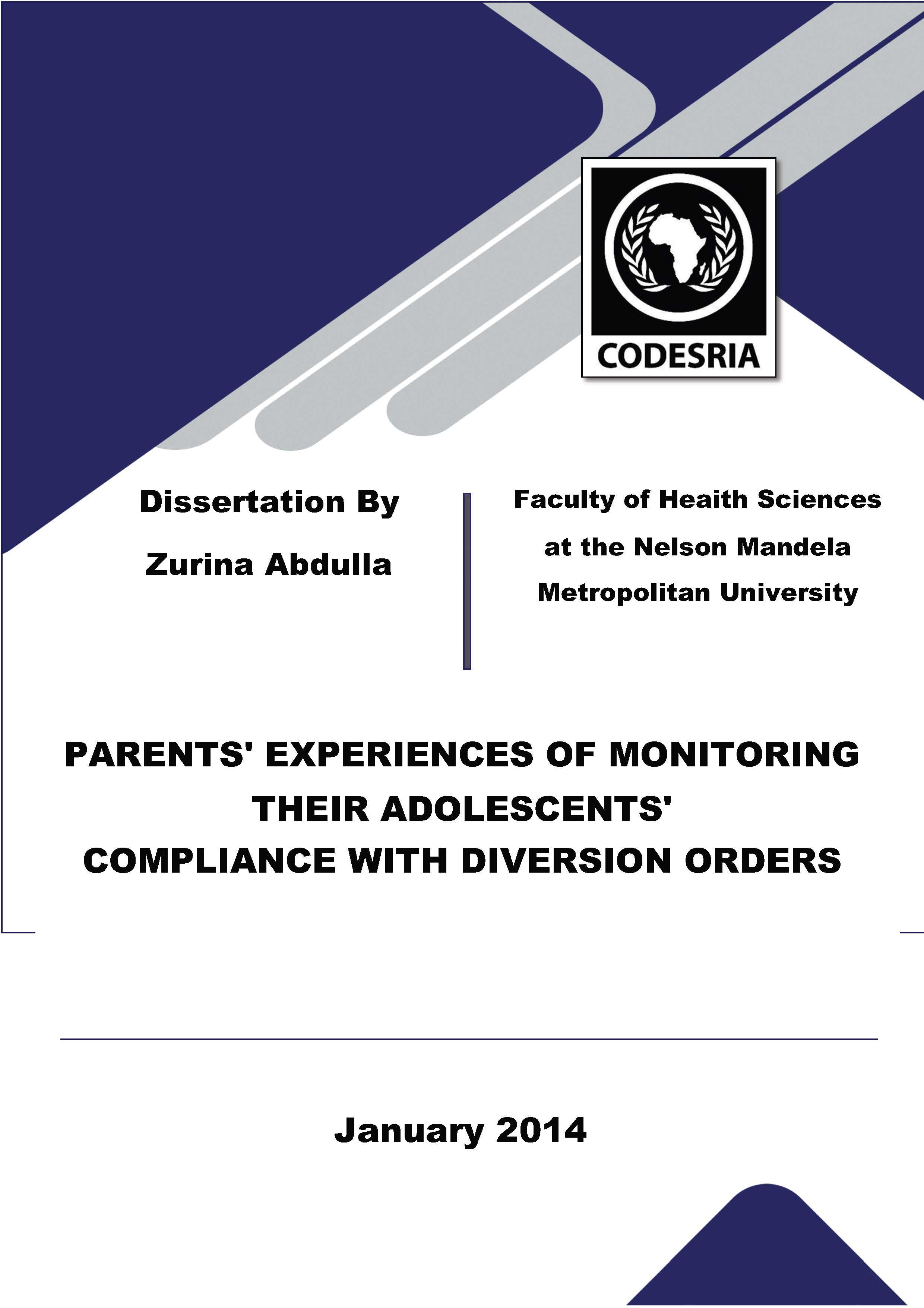PARENTS' EXPERIENCES OF MONITORING THEIR ADOLESCENTS' COMPLIANCE WITH DIVERSION ORDERS
Keywords:
Delinquency, youth, parents, crime, child justice, diversion, parental monitoringSynopsis
The increased incidence of children committing crime and the réalisation that the
existing législature dealing with offenders faiied to cater for the rights and needs
of child offenders gave rise to the introduction of the Child Justice Act 75 of 2008.
This Act enables the South African criminal justice system to deal with children in
a manner appropriate to their developmental stage. One of the initiatives
introduced by the Act is termed 'diversion', where children are diverted from the
criminal justice system into restorative developmental programmes, offered by
organisations such as NICRO (National Instituts for Crime Prévention and the
Réintégration of Offenders). Their parents or guardians are tasked with the
responsibility of monitoring their compliance with the diversion order in terms of
Section 24(5) of the aforementioned Act. The monitoring responsibility assigned
to the parents of diverted adolescents prompted the research question and aim
of this study, namely to explore parents' expériences in monitoring their
adolescents' compliance with diversion orders and to identify service needs in
supporting parents in fulfilling their rôle as stipulated in the Act. This was a
qualitative study that was exploratory-descriptive and contextual in nature. A nonprobabiiity
purposive sampling technique was employed to identify the parents or
guardians of adolescents aged 14 to 17 years that had been diverted to NICRO
between June 2011 and June 2012. Individual semi-structured interviews were
conducted with the selected parents, and the data collected was anaiysed using
thematic data anaiysis. The trustworthiness of the research process and the
findings was enhanced by employing a variety of data vérification stratégies. This
research contributes to a greater understanding of parents' monitoring
expériences of their adolescents' compliance with diversion orders. The study
revealed that most parents experienced their rôle as an additionai responsibility;
they needed access to counseiing and information on the child justice process.
Downloads
References
Abbott-Chapman, J., Denholm, C. & Wyld, C. 2008. Social support as a factor
înhibiting teenage risk taking: views of students, parents and professionals.
Journal ofyouth studies, 11 (6):611 -627.
Allen, J.P., Porter, M.R., McFarland, F.G., Marsh, P. & McElhaney, K.B. 2005.
The two faces of adolescents" success with peers: Adolescent popularity,
social adaptation, and déviant behavlor. Child Development, 76(3):747-760,
May/June.
American Psychological Association. 2002. Developing Adolescents: a
reference for professionals. Washington D.C: American Psychological
Association. [Online] Available:
http://www.apa.orq/pi/famiiles/resources/develop.pdf [10 September 2013].
Anderson, R.J. & Branstetter, S.A. 2012. Adolescents, parents, and
monitoring: A review of constructs with attention to process and theory.
Journal offamily theory and review, 4:1-19, March.
Arthur, R. 2007. Family life and youth offending. Home is where the hurt is.
London: Routledge.
Ashbourne, M.L. & Daly, K.J. 2010. Parents and adolescents making time
choices: choosing a relationship. Journal of family issues, 31(11) 1419-1441.
Babbie, E. 2010. The practice of social research. United States: Wadsworth
Cencage leaming.






